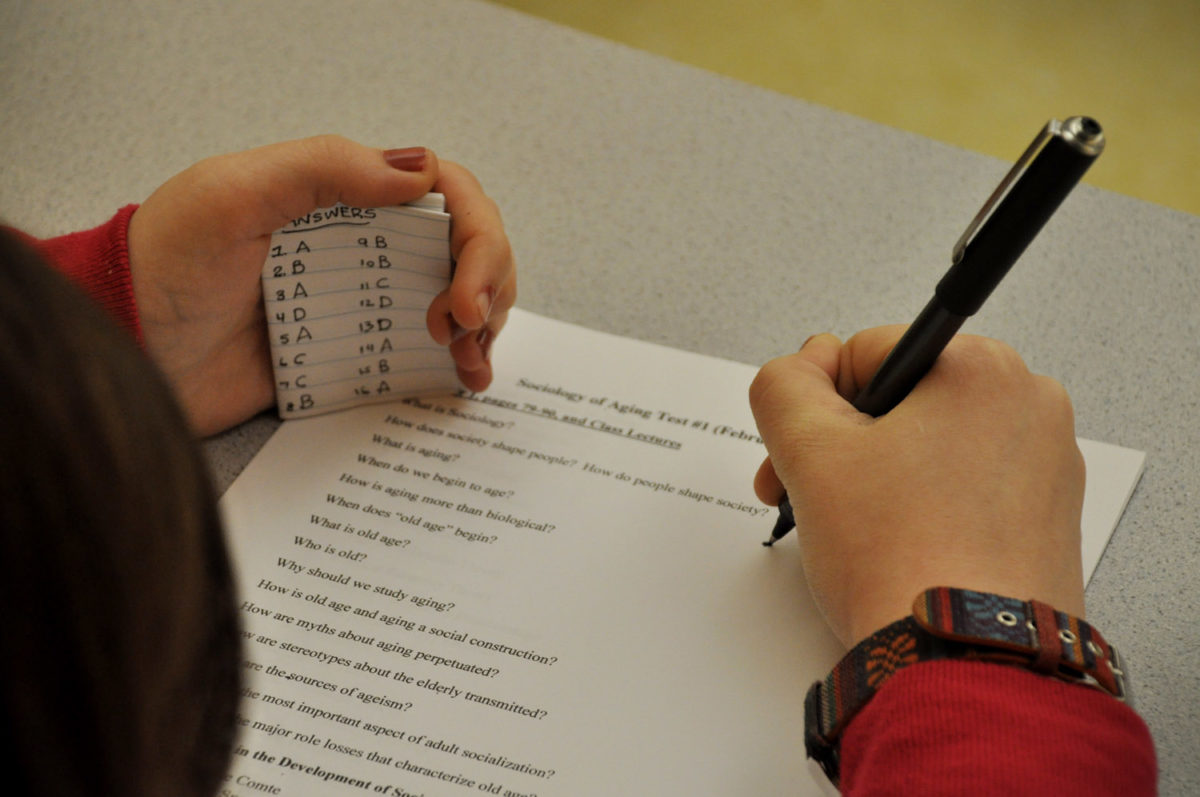
Jan Wong was sitting in her office with the door closed, working on her computer.
Outside her door she heard some talking. She thought she didn’t have an appointment and didn’t answer so she could get her work done. Then, a sheet of folded paper was slid under her door.
The journalism professor quickly jumped up and ran to the door, opened it and yelled down the hall that she was there. She spotted the backs of two people, one was female, running down the hall. No matter how much she yelled they didn’t turn around. She went back to her office and opened the note.
“Dear Professor Jan Wong, I am a student enrolled in Journalism 1023A. Some students in our class are cheating when they are marking one another’s quizzes. I think you might want to change the way quizzes are marked. Please do not mention this letter in class.”
Wong was excited. She had never received a note from a student like this before.
“I have to protect them. They are whistle blowers. So I know, but I’m not going to say more.”
Wong was oblivious to the cheating in her first year class. She thinks what happened is when the students correct each other’s quizzes, they make a deal with their friends to fill in the correct answer.
The following class, Wong decided to do things differently.
“When everyone was done the quiz I just started collecting it. And then I just randomly handed them out, but I was careful not to give it to someone who was friends with them.”
Wong said she thinks she eliminated the cheating with this new system. She looked in her grade book to see whose grades changed after the two weeks since she switched the system.
“There are a couple for sure but I don’t know if that just means they didn’t read that week and did the other week. I don’t have proof either way though so I can’t punish anyone.”
Wong said it’s good her students were whistle blowers.
“I think there’s a prejudice in our culture against people pointing out wrong-doing. I think there’s a prejudice that it’s not nice, that you’re getting someone in trouble,” she said. “But I don’t know why they were so scared to be seen. Because I guess I’m unpredictable. They didn’t know what I would do. And they didn’t want the class to know.”
Wong never noticed cheating before, but after talking to her colleagues she found out it was more common in university than she thought.
However, she thinks cheating is done less because they are university students and more because they are human.
“If people can find a way to get around something, they’re going to do it,” she said. “I think the human nature part of it outweighs the overall goal of trying to learn something.”
One of the students in the class doesn’t think the cheating was excessive. Kaye McGee said Wong’s quizzes are very informal.
“The quizzes and the quiz marks aren’t a big deal in terms of the course. The point of the quizzes is to make us do the readings. It’s not like we had these weekly tests and there was some cheating conspiracy or something,” she said.
The mature student said she was aware of some people filling in the odd answer, but that was all she knew. She said she didn’t participate in any of the cheating.
McGee said she has no problem with the students giving Wong a note about it.
“I just can see my perspective and the people that sit around me so there may have been more going on. And if it was bothering them and this was something that was important to them, then they should absolutely have said something.”
